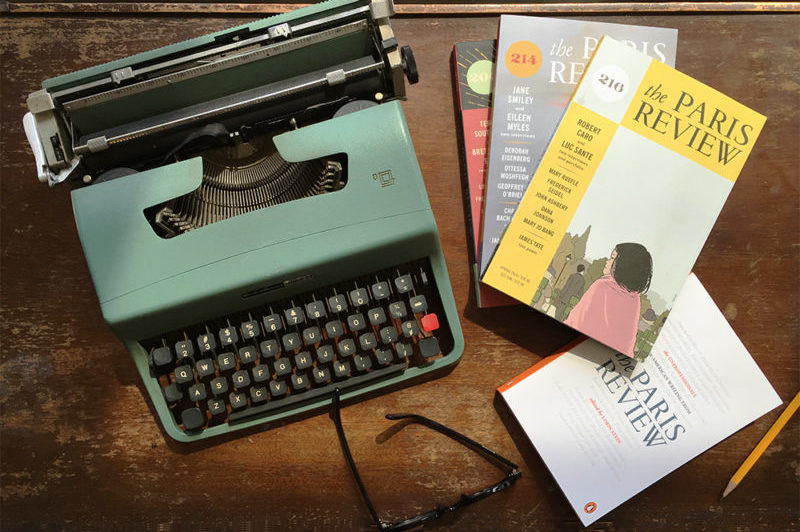Arguably the most respected literary journal of all time, The Paris Review is so much more than a quarterly feast for belletrists. It’s a cultural institution. And there are lessons to be learned from its unflagging devotion to printing nothing but first-rate content.
The Paris Review, an international literary quarterly, was founded in Paris in 1953 by Peter Matthiessen and Harold L. Humes with one simple objective: to showcase the very best fiction and poetry of their time.
The publication has been headquartered in New York City since 1973, and continues to evolve and forge ahead, unfettered by what editor Lorin Stein calls “the pressure to please a crowd” — politics, popular culture, or the news of the day.
In this age of social media cacophony, the journal seeks to access something much more imperative: the power words have on our minds and spirits. No magazine — not even The New Yorker — has dedicated itself to the valorization of fiction, poetry, and the culture of writing more fully than The Paris Review.
In an interview with Edward Hirsch (Issue No. 137, Winter 1995), Susan Sontag said, “A writer is someone who pays attention to the world.”
The Paris Review pays attention. And here’s what all content marketers can learn from it.
The Art of Sharing
Remaining true to the Review’s original mission, editor Lorin Stein magnanimously opened the magazine’s archive in 2010. His team has also put together a fabulous website and an irresistibly followable Facebook page. The Review even has an Instagram feed, a largely literary oasis within the visual platform filled with snippets of manuscripts and famous drafts like this one of Barry Hannah’s “Ray”:
(Speaking of the illustrious Mr. Stein: do yourself a favor and read this. I won’t even bother quoting his insights here — they’re so essential, so life-affirming, that I’d have to cut and paste the entire thing.)
The Art of the Interview
Beginning with E.M. Forster in Issue No. 1 (Spring 1953), the journal’s legendary Writers at Work series is perhaps its most important legacy. Notable interviewees include Vladimir Nabokov, William Faulkner, Ralph Ellison, and Toni Morrison. (And all aspiring screenwriters should read Billy Wilder posthaste.)
Actually, just buy this and call it a day. It’s basically graduate school in a box. As if I didn’t already have a problem with tsundoku.
The Art of Illustrating
In a recent article from AIGA’s Eye on Design blog, Madeleine Morley writes persuasively about the Review’s sixty-three years of revolutionary cover art. She sums it up brilliantly with this statement: “Great content matched by great style makes a great magazine.”
(Also, check out Flavorwire’s 30 Greatest Paris Review covers here.)
The Art of Making an Argument
Earlier this year, 818 team members had the pleasure of hearing Lorin Stein speak at Neuehouse. In addition to being ridiculously inspiring and effortlessly cool, he also made a compelling statement that we’ve been turning over in our minds: “Editing is making an argument.”
Quite a nice office perk. @parisreview #818NYC #writing #journalism #content
A photo posted by 818 Agency (@818agency) on
A good editor sees what is distinctive about a writer, but also sees the big picture. The “argument” between a writer and an editor is an essential, ongoing, synchronous dialogue, a sharing of ideas, a true partnership — and it makes for honest expression and emotionally resonant content.
This is why the Review has always been relevant, even if it has never covered topical events: it was founded by editors who were professional aesthetes, publishing curated literary exhibitions for anyone interested in taking a deeper look at our cultural world at large.
Gents like Mr. Stein continue to promulgate brave, spirited content that isn’t merely worth reading — it’s worth re-reading.
Haas Regen is the Managing Content Editor for 818 Agency in New York City. He’s also a theatre artist. He studied acting, directing, and playwriting at Brown’s MFA program.




